0
1P — First-Party Seller
3P — Third-Party Seller
An enterprise or a person who markets their product or products through Seller Central. Using their own business name, sellers serve as retailers by selling their goods directly to customers on Amazon’s platform.
3PL — Third-Party Logistics
3PL (Third-Party Logistics) refers to the delegation of e-commerce logistics operations such as inventory management, warehousing, and order fulfillment to an external organization.
By utilizing the resources and infrastructure of 3PL providers, e-commerce retailers can streamline their processes and automate the fulfillment of customer orders.
7-Day Deal
A promotion type for Amazon sellers and vendors. The 7-day time-bound offer is featured on Amazon’s Best Deals page.
Pro Tip
Want to quickly jump into Amazon Ads? Check our beginners guide to advertising on Amazon and grow your sales faster.
A
A+ Content / A+ Page
This page displays Amazon’s enhanced brand content, or EBC, which enables sellers to enhance their product detail page with graphics and images, as opposed to a standard listing.
A9 Algorithm
Amazon’s algorithm to prioritize and display products in search results.
AA – Amazon Associate
Also known as the Amazon Affiliate program. It usually refers to a Fulfillment Center position.
AAP – Amazon Advertising Platform
Amazon DSP, formerly known as Amazon Advertising Platform, is a program utilized by advertisers to purchase and generate display and video advertisements.
ACoS — Advertising Cost of Sales
ACoS stands for advertising cost of sales in Amazon Ads. It defines the relationship between the budget you have set aside for a PPC campaign and the return you expect to get from that advertising campaign.
It tells you how much of each dollar spent on a PPC ad was actually spent on the advertising itself.
In short, you can calculate ACoS simply by using this simple equation:
ACoS = (Ad Spend / Ad Revenue) * 100.
Among Amazon sellers and vendors, this is one of the most commonly used Amazon acronyms.
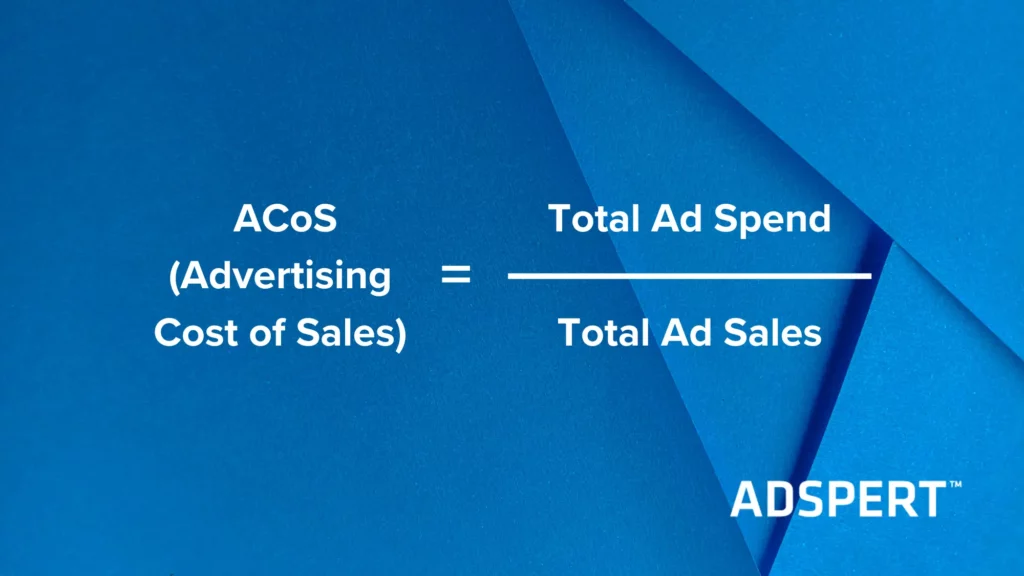
Ad Group
Group of individual advertisements included in a single advertising campaign.
Ad Spend
Ad spend is the amount of money that you’re spending on advertisements. Depending on how you measure ad spend, you could calculate direct ad spend, or you could include costs for ad agencies and other ad marketing staff.
Advertising Account
An account on an ad platform. In this case the platform is Amazon Ads, but the same expression is also used for other platforms, such eBay Ads, Google Ads, etc.
Advertising format
The type of advertisement that you use. For example Sponsored Display, Sponsored Brand, Product Display Ads.
Advertising objective
The goal that you want to achieve from digital advertising. Examples include brand awareness, consideration, purchase, loyalty and such.
Advertising placement
The place where an advertisement appears. For example search results page on Amazon.com, Amazon devices (such as Fire TV or Fire tablet), and third-party sites.
Advertising platform
Technology for driving traffic. For instance, Google Ads or Amazon Ads are the major ad platforms in online advertisement.
Affiliates
Affiliates of an affiliate program enables referrals that earns associates money for driving traffic and sales to Amazon through their marketing.
Affiliates have a presence across a variety of platforms, such as personal blogs, forums, YouTube, Twitter, Facebook, and other social media channels.
AGS — Amazon Global Selling
AM — Area Manager
Amazon’s Choice
Amazon’s Choice is a seal featured by Amazon and represents very well-rated, immediately available products at an attractive price.
AMG – Amazon Media Group
This program provides sophisticated Amazon advertising capabilities, both on and off Amazon’s website, and allows for the creation of ads on Amazon devices such as Kindle to increase traffic to the site.
AMS — Amazon Marketing Services
Amazon Marketing Services which are now known as Amazon Advertising.
AMZ — Amazon
Shorter for Amazon. It is also used for Amazon’s stock abbreviation.
AMZL — Amazon Logistics
Andon or Andon Cord
Andon Cords were implemented by Amazon in approximately 2012, granting any Support Agent the ability to give a warning or remove a product from the list of purchasable items. These cords are utilized in cases where a product is identified to have a noteworthy safety or quality concern.
ARA — Amazon Retail Analytics
Amazon Retail Analytics, also known as ARA Basic, provides vendors with a variety of reports that cover topics such as sales and inventory. These reports are accessible to all vendors.
ARAP – Amazon Retail Analytics Premium
Amazon Retail Analytics Premium is an optional upgrade that offers vendors more comprehensive and diverse reports analyzing customer behavior and traffic patterns.
ASIN – Amazon Standard Identification Number
The Amazon Standard Identification Number (ASIN) is ten characters long and can consist of both letters and numbers. It is a unique identifier assigned by Amazon to each product listed on their website.
ASIN identifier is used to differentiate one product from another and helps Amazon keep track of its vast inventory. Unlike the ISBN, it does not represent an international standard.
Amazon Seller
Type of Amazon ads account. A dealer in the Amazon seller program sells goods on the Amazon marketplace.
Amazon Stores
Vendors and third-party sellers enrolled in Amazon’s Brand Registry program have the ability to create a free, multi-page Amazon Store. This format can get products in front of more people and tell compelling stories about the brand behind them.
ASN — Advanced Shipping Notification
An electronic packing list that must be submitted by vendors to Amazon prior to any deliveries is known as an ASN (Advanced Shipping Notice). This notice can be generated through the Vendor Central Portal or via EDI (Electronic Data Interchange).
ASP — Average Selling Price
The calculation is determined by dividing the total sales by the number of products sold.
ASU — Amazon Seller University
Amazon Seller University, or ASU, is a platform designed to educate new sellers on the basics of selling on Amazon. It comprises a vast collection of articles and videos that serve as a knowledge base for sellers.
Attribution
Attribution refers to which advertisement was responsible for informing that purchase. Different services have different attribution models.
Automatic Campaigns (Amazon)
Amazon uses specific, context-based targeting of keywords to generate the best results from your ads. Amazon uses natural keyword searches by browsing to find similar products to yours to ensure that the ads are relevant to the searchers in your specific market.
Amazon Vendor
An Amazon Vendor has one of the titles of manufacturer/distributor/supplier and is the person or entity responsible for transporting your products to multiple Amazon warehouse locations.
Amazon Vine
Amazon Vine is a program available to vendors or sellers to secure authentic and verified reviews for their products. The program invites Amazon’s most reliable reviewers to share their feedback on new or pre-release items, allowing other customers to make informed purchasing decisions.
AWS — Amazon Web Services
AWS is a cloud computing platform provided by Amazon, utilized by countless customers ranging from major corporations to prominent government agencies to support their cloud infrastructure.
Some Amazon acronyms are similar to each other, so don’t mix up AWS and MWS!
B
(Ad) Budget
The amount of money that you will target to spend on your advertising campaign.
BA — Brand Analytics
Brand Analytics is a feature offered by Amazon. BA delivers valuable insights to assist Brand Owners in making informed and strategic decisions about their product portfolio and marketing/advertising efforts. To obtain access to this feature, brands must be registered with Amazon’s Brand Registry.
BB — Buy Box
A box on the product detail page (PDP) allows customers to begin purchasing by adding the product to their cart. A qualifier for Sponsored Products ads eligibility.
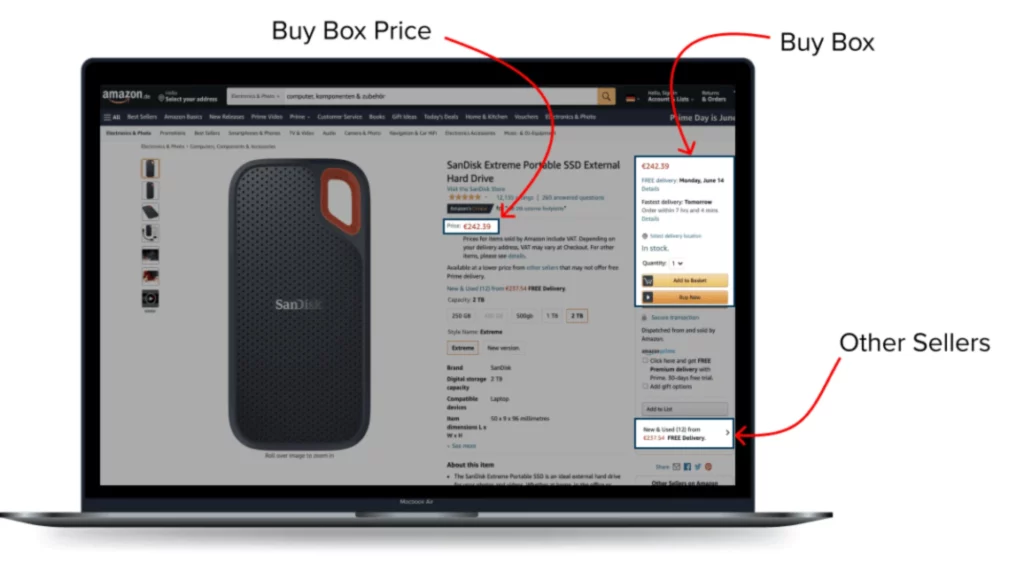
Best Deal
A limited-time promotional offer category available to vendors on Amazon.
Bid
The highest price a seller is prepared to pay for a single click on an advertisement.
Bid adjustments
Percentage increase or decrease to a bid on an ad.
BISS — Business Industrial & Scientific Supplies
A restricted selling category on Amazon that is unavailable to most sellers.
Brand HQ
Brand HQ is a platform accessible to sellers in the Amazon Brand Incubator and Amazon Exclusives program.
Through Brand HQ, sellers can participate in forums, engage in Amazon’s eLearning courses to improve their knowledge, and have the opportunity to communicate with an Amazon Associate during “office hours” to address any urgent concerns.
Additionally, brands can submit Best Deals and suggest merchandising opportunities such as category page placements.
BR — Brand Registry
Amazon Brand Registry provides a set of resources to assist you in establishing and safeguarding your brand, resulting in an improved customer experience. Upon being authorized for Brand Registry, you are granted access to A+ Content, Sponsored Brands, Amazon Stores, and Amazon Brand Analytics.
Brand Store
Amazon Brand Stores are generated using a free, user-friendly tool that enables the creation of a tailored brand encounter within Amazon. Brands can personalize their stores with logos, products, and a thoughtfully crafted experience that effectively represents their unique identity.
Bundle
A bundle refers to a set of complementary products sold as a single ASIN unit.
C
Campaign
A structural element of an advertising platform account that groups multiple ad groups.
Amazon advertising campaign types are Sponsored Products, Sponsored Brands, and Sponsored Display.
Category Page
An Amazon product category is a dedicated page on the website that features a specific group of products.
Child ASIN
A child ASIN is a buyable variation of a parent ASIN, where customers are required to select an option such as size or color to complete the purchase.
All child ASINs should be listed on a single detail page under the parent ASIN.
Child Product
Frequently, products have a primary item that includes choices for various attributes like size, color, flavor, pack sizes, and others.
Typically, the primary product acts as the parent product, and the different options are categorized as child products.
Click
A click on an ad.
Close Match
Your products are displayed to buyers who use search terms closely matched with your products.
For example:
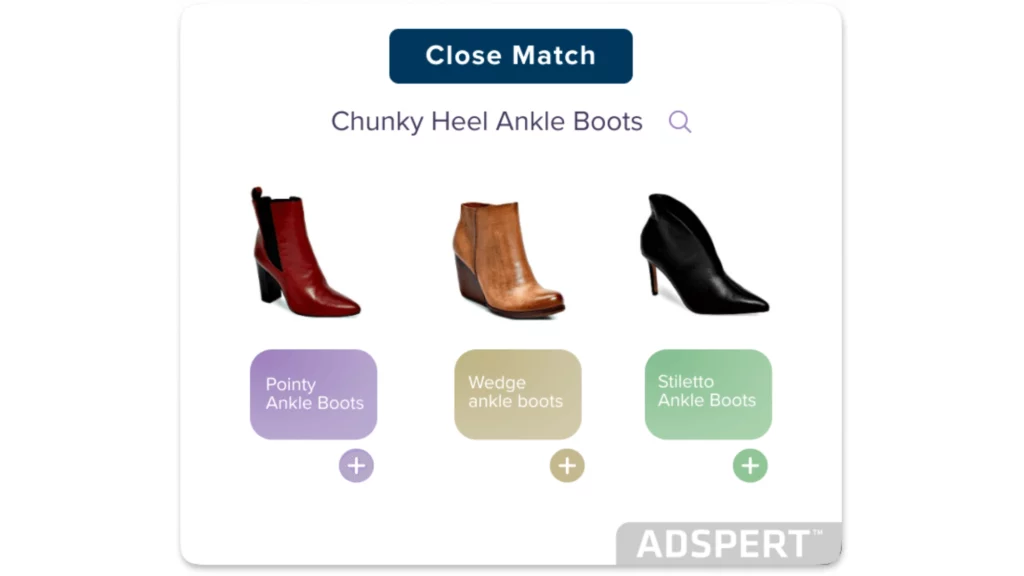
Cost per Day
The amount of money that an advertiser is willing to spend on their ads per day.
Cost per Conversion
The average cost an advertiser pays for each desired action taken by a customer after clicking on an ad. Conversion can be any action that the advertiser has defined as valuable, such as purchase, sign-up or download.
Complements
Complements are targeted buyers who view the detailed pages of products that complement your product.
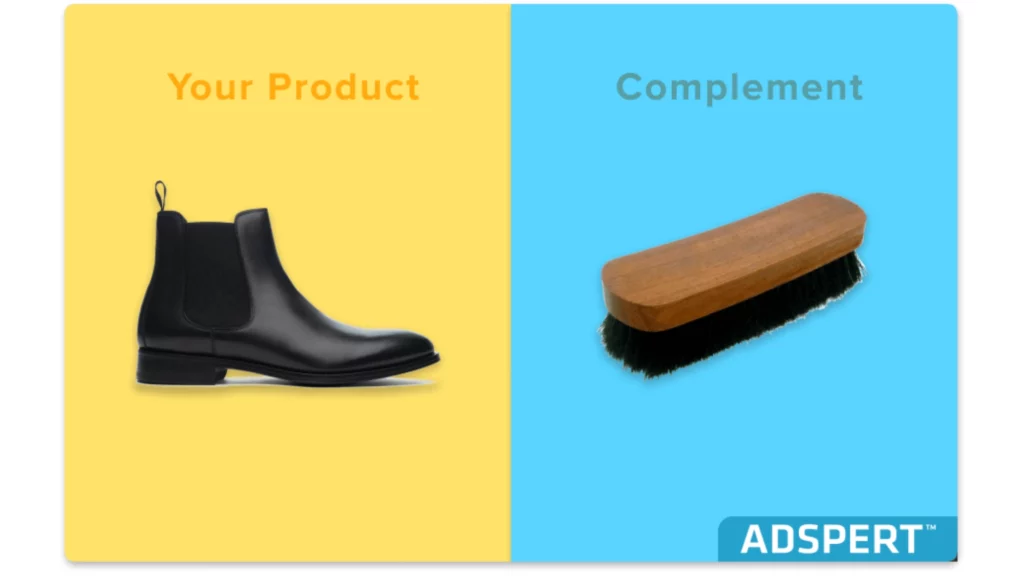
Consumer purchase journey / consumer decision journey
None of the two expressions belongs to Amazon acronyms, but they are commonly used and sooner or later, you will hear about them.
Consumer purchase journey is the terminology used to describe the overall relationship between a consumer/client and a particular product, firm, or business.
Basically, the model tries to address the need of a brand by ensuring that all the different stages of the purchase journey of a client/customer are appropriately complemented by one another.
Conversion
A conversion refers to a desired action taken by a user. In online advertising a conversion usually indicates a completed sale or transaction after clicking an ad.
Conversion delay
Conversion delay is the time delay between clicking on an ad and the actual purchase. If a user clicks an ad, but doesn’t complete a purchase (and converts conversion) until 5 days later, then we have a conversion delay of 5 days.
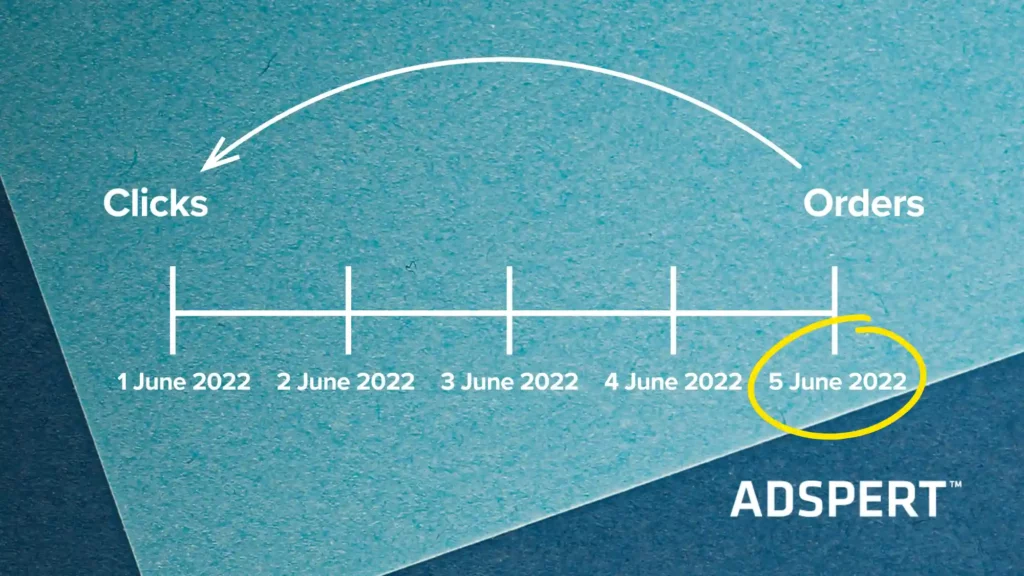
COGS — Cost of Goods Sold
The costs of producing the goods sold by a company. COGS is composed of fixed and variable costs, which in turn have a huge effect on gross profit.
Coupon
Amazon Coupons is a self-service tool that lets sellers create compelling promotions in digital coupons that show up in search results. Coupons can be used to offer discounts as either a percentage or set amount and can be targeted to select customer segments.
Usually coupons are time-limited deals offered by Amazon sellers and vendors.
CPC — Cost-per-click
The CPC is defined by the relationship between the cost or ad spend and the number of clicks.
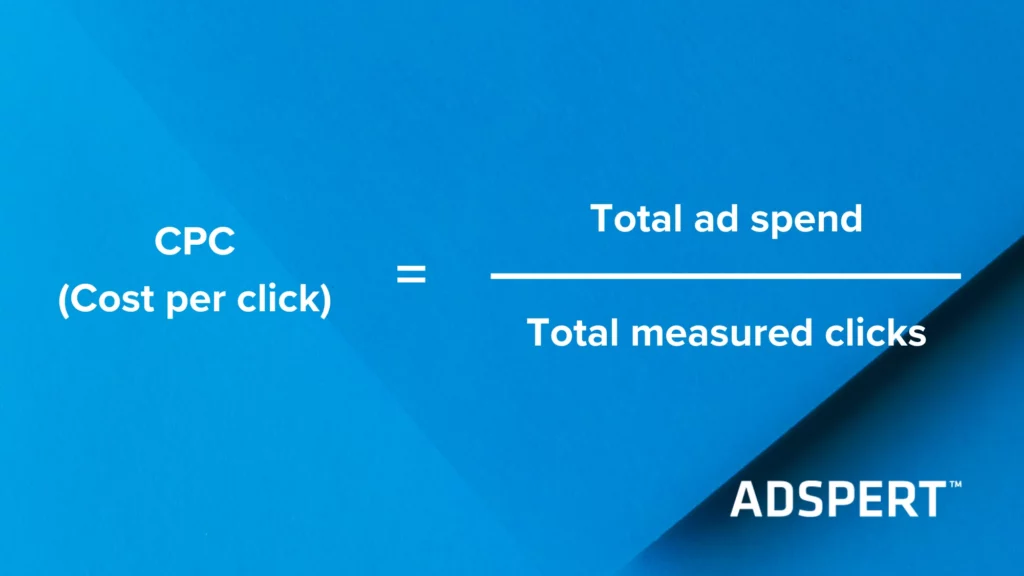
CPM — Cost per Thousand Impressions
The average cost that you pay to deliver 1000 impressions of your ads. Sometimes you will come across the definition of CPM as cost per mile which means exactly the same as cost per thousand impressions.
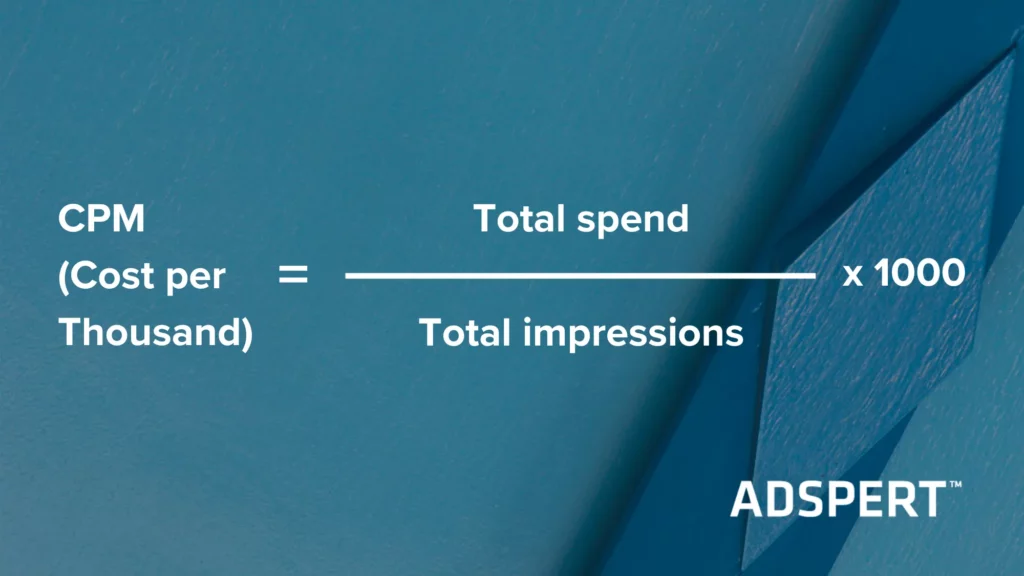
CR — Conversion Rate
The conversion rate is a ratio of clicks to conversions. If a campaign has 100 clicks and 1 conversion, then the conversion rate is 1%.
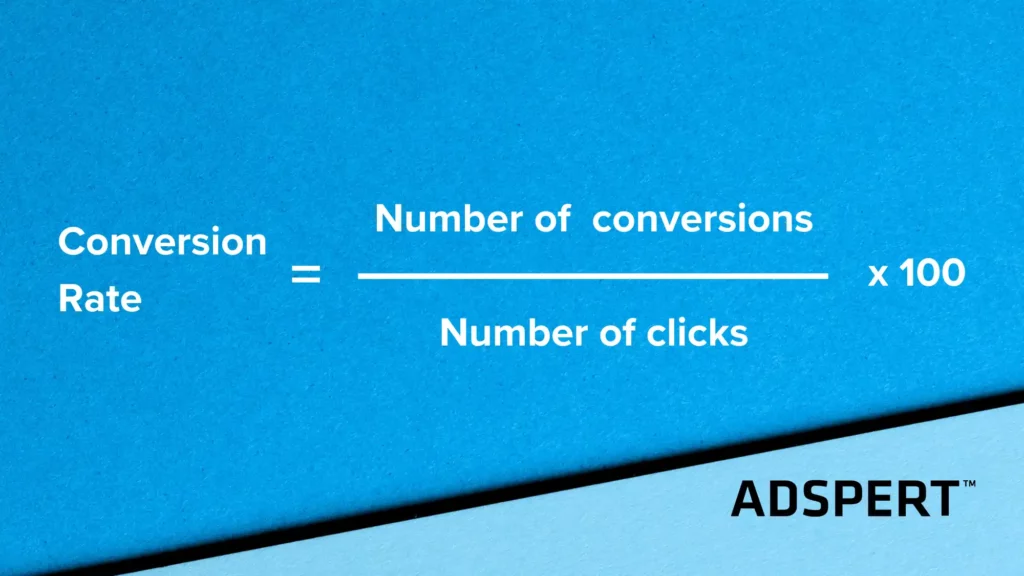
CRR — Cost Revenue Ratio
The CRR is the reversed Return of Advertising Spend (ROAS).
Its equation can define the concept of conversion revenue ratio: Cost revenue ratio = cost ÷ revenue.
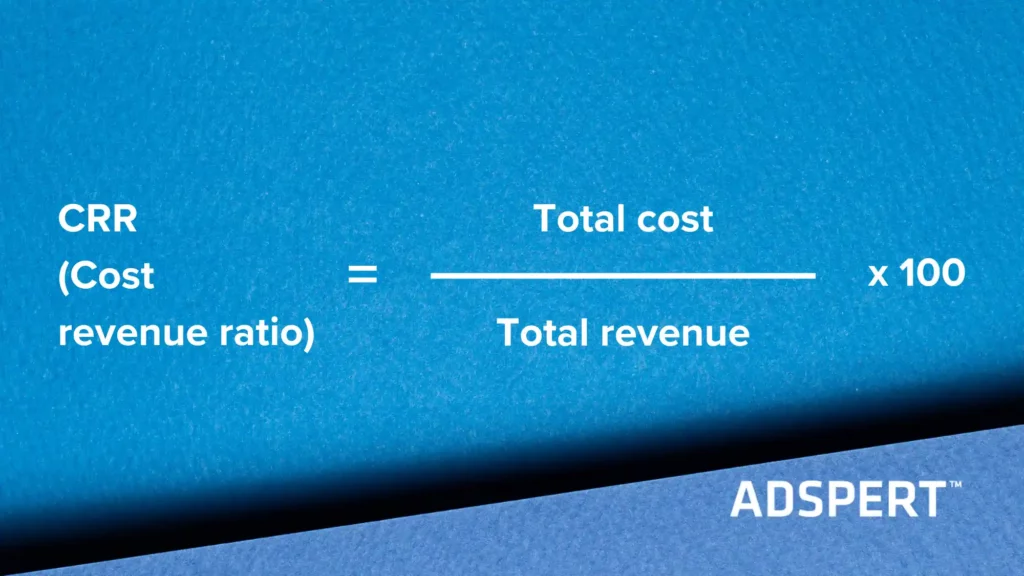
CTR — Click-Through Rate
The percentage of ad impressions that are clicked as compared to the entire number of clicks. The standard calculation for CTR is (clicks/impressions) x 100.
CV — Conversion Value
Conversion value refers to the total value of the orders placed by customers who clicked on an ad and completed a purchase within the conversion window. It is calculated by multiplying the total number of orders and the average order value.
For example, if an ad resulted in 10 orders with an average order value of $50, then the conversion value would be 10 x 50€ = 500€. This metric is useful for determining the effectiveness of an ad campaign and for optimizing bids on keywords to maximize ROI (return on investment).
D
DMG — Damaged
Damaged products that have been physically harmed during transportation or handling are referred to as “damaged goods” or “product damage.”
DNR — Delivered Not Received
The term used in shipping and logistics when the order tracking system indicates that a shipment has been delivered to the customer, but the customer disputes that they have received it. This is also called “delivery discrepancy.“
Dropshipping
Dropshipping is a retail fulfillment method that allows merchants to sell products without having to physically store or ship them.
When a customer places an order, the merchant purchases the item from a third-party supplier who then ships it directly to the customer. This can help save on costs associated with inventory management and order fulfillment.
DSP — Demand-Side Platform
The software that is used to access and decide against digital advertising inventory. The solution for Amazon Ads is Amazon DSP. Amazon DSP offers both self-service and managed options.
Dynamic Bidding
Real-time bidding or dynamic bidding is an advertising approach where a seller’s bid can increase or decrease in response to the likelihood of converting to a sale. This approach allows for rules-based bidding for Sponsored Product ads.
E
eCPC — Effective CPC
The effective CPC is the cost per click after a campaign has started and has generated clicks and cost. So if your ads campaign generated 10 clicks and you spent 1€ your eCPC is 0,10€ for this campaign.
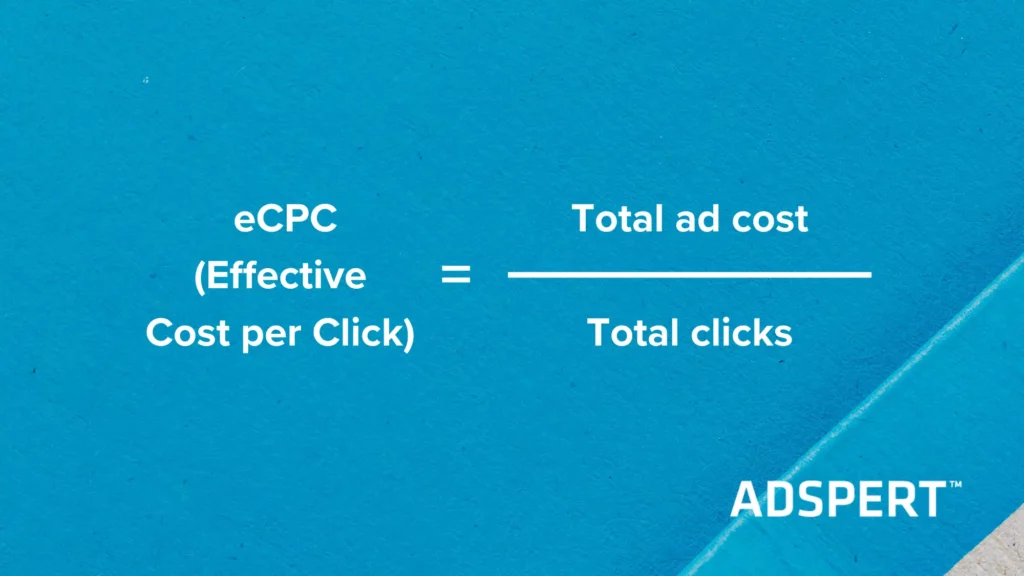
Important: What is the difference between maximum CPC and effective CPC?
The maximum CPC is a bid that you set to determine the highest amount that you’re willing to pay for a click on your ad. The effective CPC on the other hand is the final amount you’re charged for a click.
To be profitable this one should be less than the maximum CPC.
Existing Customers
Customers who have previously bought or re-purchased a brand or items on Amazon.
F
FBA — Fulfillment by Amazon
Fulfillment by Amazon (FBA) refers to the service where Amazon stores a seller’s products in their fulfillment centers and takes care of picking, packing, shipping, and handling customer service for those products.
Pro Tip
Are you considering setting up Amazon FBA for yourself? And want to know what will be your exact profits? Check out this post about 5 best Amazon FBA calculator tools, see how to correctly calculate related costs and profits and make an informed decision!
FBM — Fulfillment by Merchant
This refers to the fulfillment method in which the seller is responsible for storing and shipping the products directly to the customer, as opposed to using Amazon’s fulfillment services.
This method is sometimes known as Merchant Fulfilled (MF), Merchant Fulfilled Network (MFN), or Fulfillment by Seller (FBS).
FC — Fulfillment Center
An Amazon fulfillment center is a warehouse facility utilized by Amazon for storing, processing, and fulfilling customer orders.
H
HAZMAT — Hazardous Materials
Hazardous items refer to products that have the potential to cause harm or damage due to their flammable, dangerous, corrosive, or pressurized nature. They must be transported and stored in compliance with special regulations and precautions.
Some Amazon acronyms are hard to remember, but this one should be easy – you simply take the first three letters of each word and put them together.
I
Impressions
The number of times that an ad has been displayed to a user.
Individual Seller
An individual selling account on Amazon is a type of account where the seller pays a per-item fee. However, they do not have access to a wide range of tools, discounts, and reports that are available to other types of sellers on Amazon.
Additionally, an individual seller cannot exceed selling 40 units per month.
K
KDP — Kindle Direct Publishing
Amazon’s self-publishing platform where authors can publish eBooks and paperbacks for free and connect with millions of readers on Amazon.
Keywords
Keywords are used to target your Amazon Ads to relevant online shopping queries. You may select the keywords that you’d like to target using manual targeting or let Amazon select the keywords using automatic targeting.
KPI — Key Performance Indicator
A key performance indicator, otherwise known as KPI, is a numerical value that summarizes a company’s operational effectiveness and performance or a key performance indicator but does not provide information about actual performance.
It’s not bound only to Amazon acronyms, it is commonly used in other areas outside online advertising. Businesses usually measure progress towards specific business outcomes through measuring key performance indicators.
These indicators are normally based on statistical measures, such as the average price and sale volume over time, profit margin, and various other easily determined and collated indicators.
L
LD — Lightning Deals
A time-limited promotion offered on Amazon with a limited quantity available for purchase. Lightning Deals can be found throughout Amazon and are available on the Today’s Deals or Prime Day pages.
Customers are limited to one deal each until either the promotion period expires or all available inventory is claimed.
Listing
A listing on Amazon refers to a product that is available for purchase on the platform. It is presented similarly to an item in a catalog through a product detail page.
Listing Optimization
Amazon listing optimization is the process of improving the information on an Amazon product detail page, including product titles, descriptions, images, and other details. The aim is to increase visibility, attract more customers, and ultimately drive more sales.
Loose Match
This option allows your ad to be shown in search results if your ad product slightly matches buyers’ search results.
For example: You sell “Song Cover Glass for Partner, Friend, Family.” You may appear on Valentine’s Day search result like below.
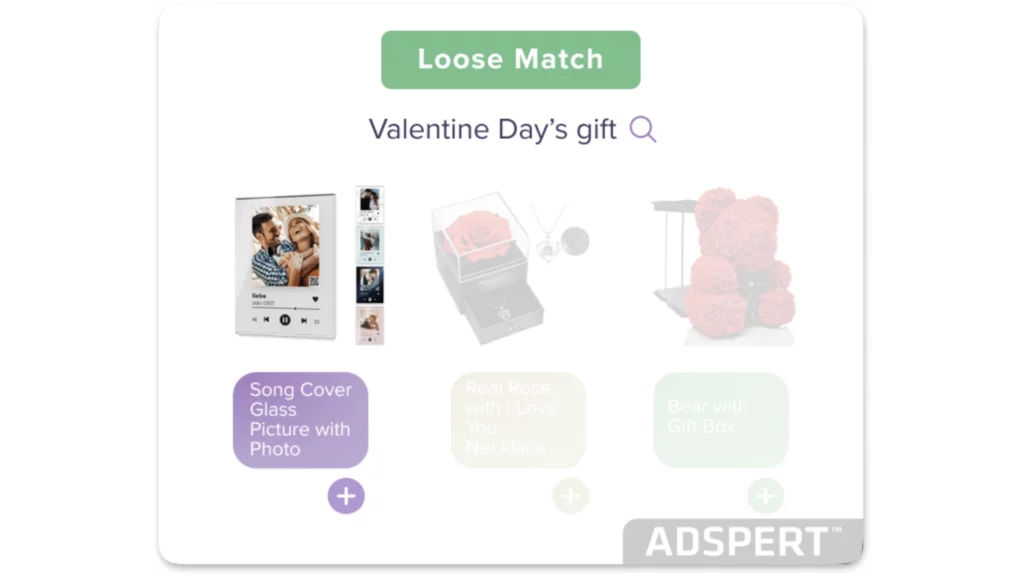
M
Manager Account
An ad platform manager account that has access to multiple actual ad accounts.
Manual Campaigns
With manual campaigns, the seller chooses the keywords to be targeted in the ads. There are a couple of options for targeting these keywords – which are called the match types on Amazon.
The match types map the instances for which the ad is shown, allowing you to restrict ads only for the best buyer audience.
Marketplace
Amazon marketplace refers to the location or domain where a seller is offering their products for sale. It could be a specific country such as United Stated, Canada, United Kingdom, Germany, etc. or a general third-party marketplace.
MF — Merchant Fulfilled
When a seller ships products directly to the customer, as opposed to utilizing Amazon’s fulfillment services. It is also known as Fulfilled by Merchant or Merchant Fulfilled Network.
MWS — Marketplace Web Services
Marketplace Web Services (MWS) is a platform for sellers to integrate third-party applications with their accounts. This feature is not accessible for Amazon individual seller accounts.
N
NTB — New to Brand
New-to-brand metric describes customers purchasing your brand/product for the first time on Amazon over the past year.
These metrics give advertisers the tools to estimate the cost of engaging new customers on Amazon and identify the most efficient channels and tactics to achieve their campaign goals.
P
Parent ASIN
A primary ASIN that consolidates various versions on a single product page. The primary ASIN can include numerous child ASINs as its variants, such as size, color, flavor, scent, and so on.
PCOGS — Product Cost of Goods Sold
Product cost of goods sold can be calculated by multiplying shipped units with the cost price.
PED — Prime Exclusive Discount
Prime Exclusive Discount is a type of a deal. It is available only to Amazon FBA sellers and targeted for Prime-eligible items. Prime Exclusive Discounts can be an amount or percentage off, a limited-time deal.
PPC — Pay Per Click
Pay per click system is wide-spread in online advertising where an advertiser pays for an ad only when it’s clicked.
Prime — Amazon Prime
Amazon’s paid subscription service. Prime members benefit from free, fast delivery on millions of items. Plus it includes a range of services and streaming entertainment options such as Prime Video, Prime Music, and more.
Product Display Ads
Amazon Product Displays Ads are CPC ads that target specific shoppers, interests, and even competitors’ products. These ads are relevant to buyers looking for specific product pages instead of those scrolling search results on Amazon.
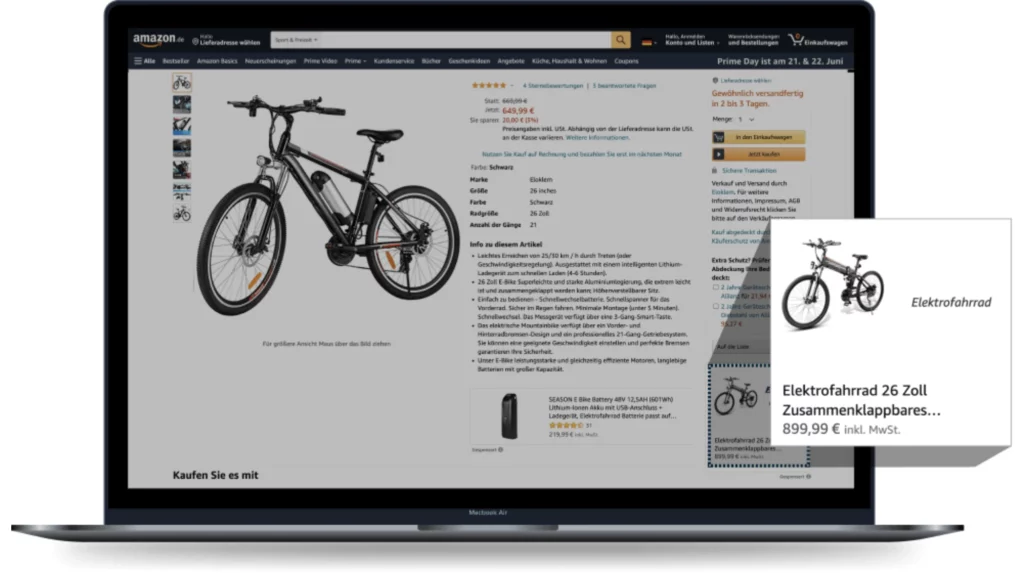
R
RA — Retail Arbitrage
Retail arbitrage is also known as online arbitrage. It is one of the ecommerce business models where you purchase products at a lower price point and resell them for a higher price in order to generate profits.
RFS — Refund at First Scan
RIPV — Received Intellectual Property Violation
ROAS — Return on ad spend
Return on ad spend (ROAS) is an internet marketing metric that calculates the monetary value gained for every dollar spent for online advertising. Return on ad spend is usually calculated as a percentage of a company’s total advertising budget.
Still, it can also be compared to the cost per action (CPA), which measures how much it costs a company per click-through, divided by the number of impressions, or “brush” or “response” that a company receives from an advertisement.
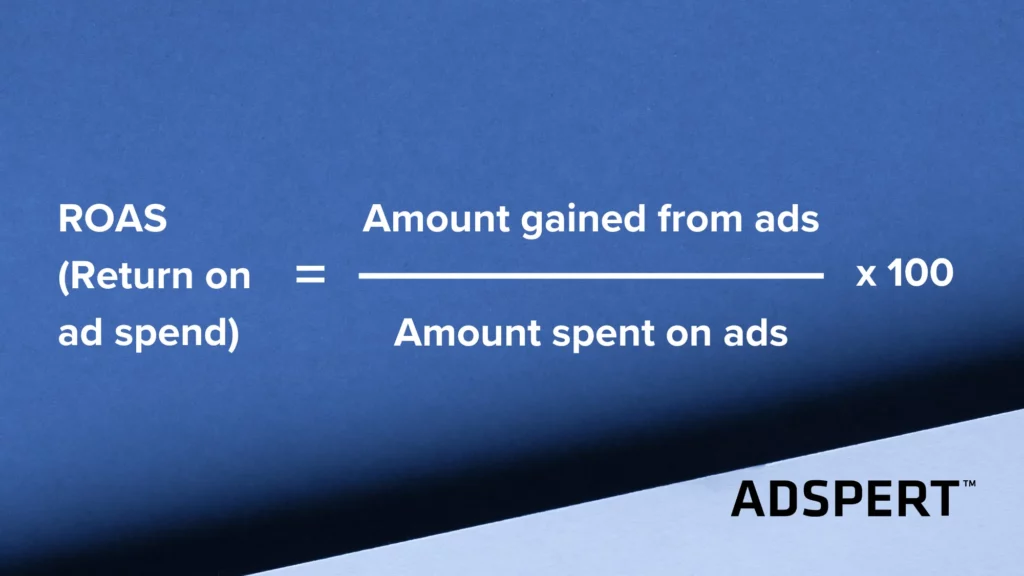
ROI — Return on Investment
Return on investments is the ratio between initial investment and net profits earned over time. A high ROI means that the returns favorably match the initial cost, either labor or capital.
As such a key performance indicator, ROI is regularly used to assess an individual’s efficiency or assess the optimisation of various investments.
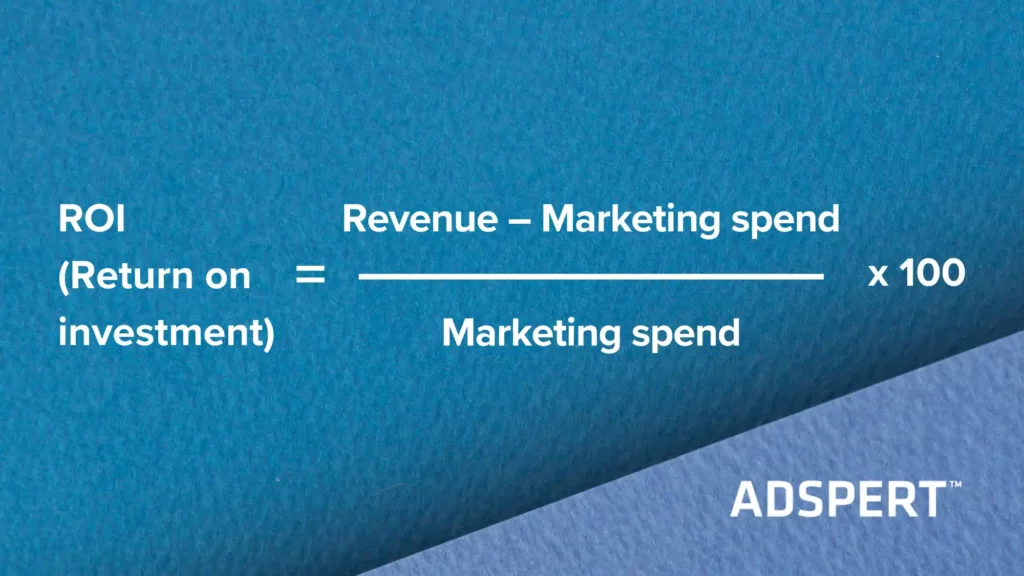
RRP — Recommended Retail Price
In the context of working at the Amazon Fulfillment Centers.
RSP — Robotics Service Platform
RSR — Reserve Stow Racks
S
SB or SBA — Sponsored Brands
In essence, Amazon Sponsored Brands is a way for retailers to increase their advertising revenue by advertising their own brand and placing their own ads on websites visited by their customers.
In most cases, these ads show up at the very top of the page when a consumer searches for a specific topic, making them highly effective for reaching potential customers.
Both Amazon acronyms are known, but SB is the more common one.
SC – Seller Central
The portal known as Amazon Seller Central is utilized by merchants and brands to directly market and sell their products to Amazon customers. If you have a Seller Central account, you are categorized as a third-party or marketplace seller.
You can also see all your Amazon Ads activities and results in Seller Central.
SD or SDA – Sponsored Display Ads
Sponsored Display ads are a type of advertising format that allows advertisers to promote their products to shoppers both on and off Amazon.
These ads are targeted to customers based on their shopping behavior and can appear on product detail pages, customer review pages, and even off Amazon sites and apps.
Again, both Amazon acronyms are familiar, but SD is more widely used.
Seller Feedback
Evaluations of the vendor or seller, not the actual product.
Seller Forums
Amazon has established an online community, similar to a social network, exclusively for its sellers. Known as Seller Forums, this platform allows sellers to seek advice, exchange their experiences, and sometimes even provide negative and unhelpful guidance to other sellers.
Only sellers have access to the Seller Forums, but the forums are monitored by Amazon’s employees who act as moderators and can modify posts and address queries.
SKU — Stock Keeping Unit
SKU is a unique ID number for a product that is being offered by a particular seller. While Amazon may list ASINs, sellers usually make use of SKU numbers to keep track of their inventory.
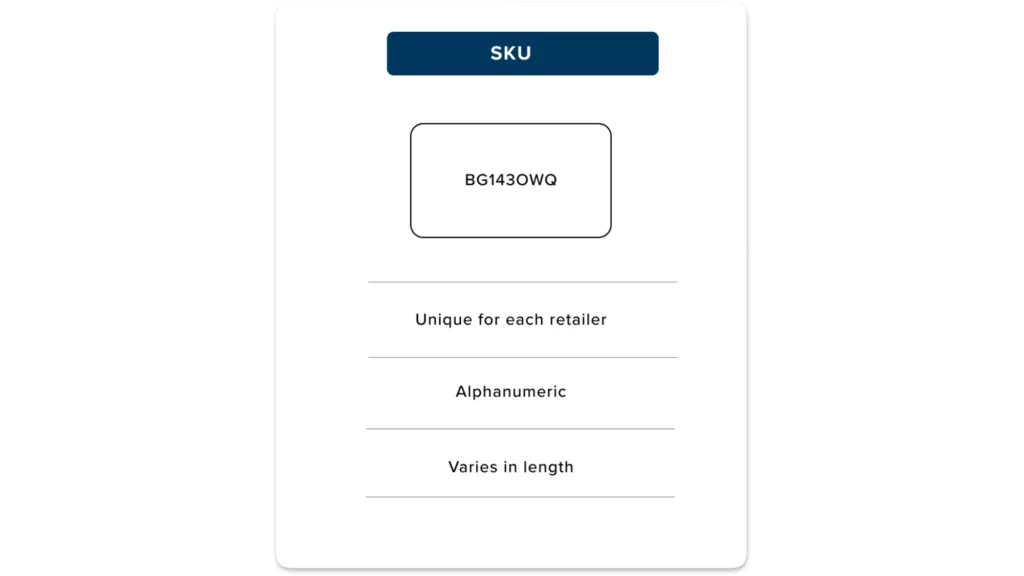
Sponsored Products
Amazon Sponsored Products ads are the product or keyword-targeted advertisements used to advertise products.
Usually, they appear like organic search results and connect directly to the specific product detail page. These ads generate high-quality clicks and yield a much higher ROI than many other pay-per-click (PPC) programs.
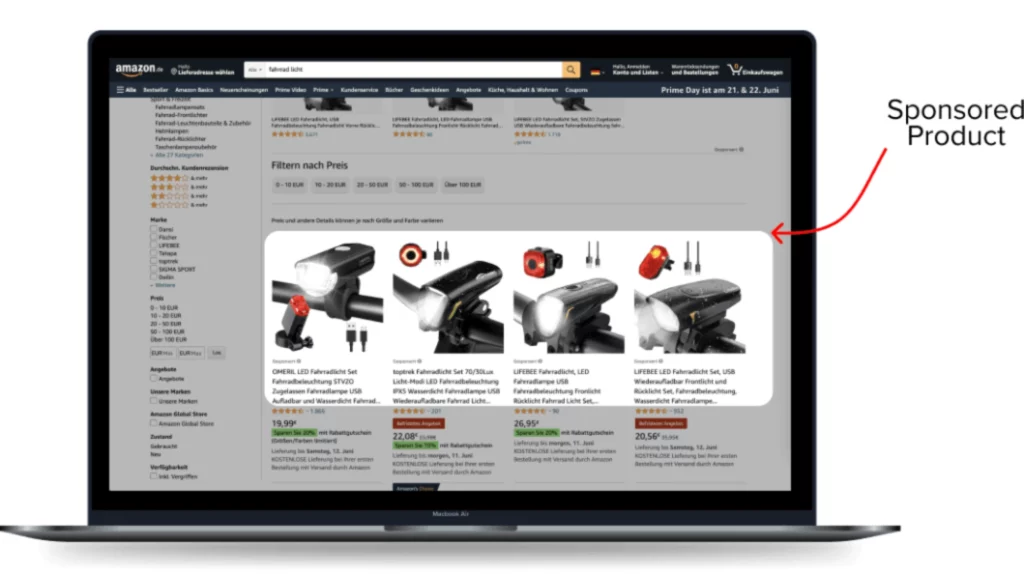
Substitutes
With substitutes, shoppers will see your ad on the detail pages of products that are similar to your product.
For example: if you sell Puma running shoes, other similar products appear on your product details page.
T
TACoS — Total Advertising Cost of Sale
TACoS in the context of Amazon Ads stands for Total Advertising Cost of Sales. It is a metric used to measure the efficiency of an advertising campaign on Amazon.
It’s probably the only among Amazon acronyms that can be mixed up with the popular Mexican food. So when hear a fellow advertiser talking about TACoS, they are probably not telling you what they had for lunch.
V
Variation
Numerous products consist of a primary item that offers multiple options such as size, color, flavor, pack sizes, and other attributes.
Typically, the primary product is assigned a parent ASIN while its variations are considered child ASINs.
Vendor Central
When using Vendor Central, Amazon sends a purchase order (PO) to the vendor who then fulfills the order and ships the product back to Amazon.
This vendor arrangement designates Amazon as the retailer while the vendor functions as a wholesale supplier to Amazon. To sell through Vendor Central, a direct invitation from Amazon is required.
Did we miss anything?
Need something explained? Notice something is missing and we should add it to our Amazon acronyms list? Contact us so we can address it and help other Amazon sellers and vendors.




